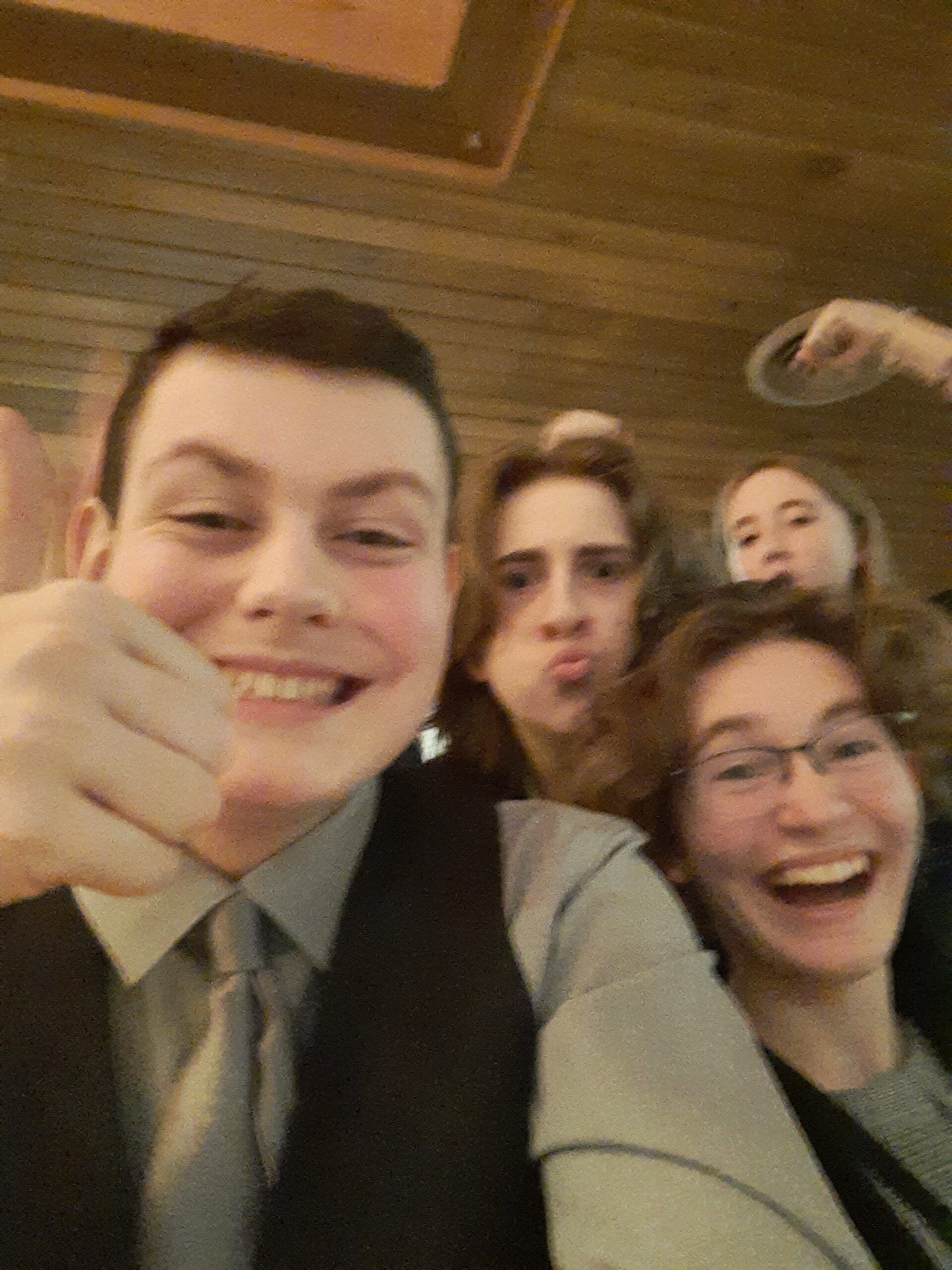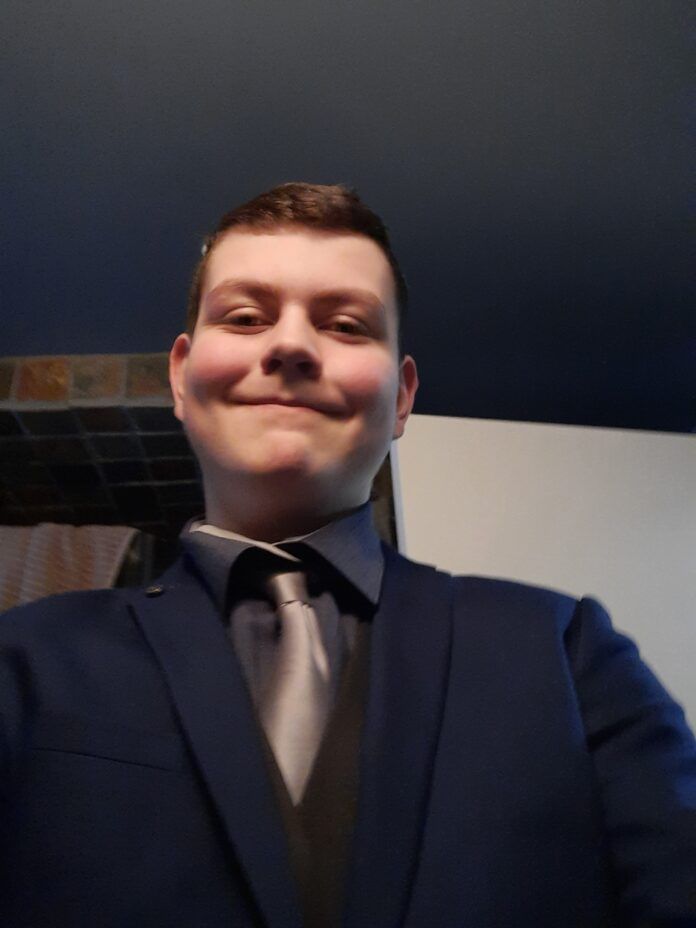J.L. Crowe Grade 10 student Liam Skeoch is the best high school debater in BC. That’s after being named top speaker in the senior category of the Law Foundation Cup’s recent provincial debate, where he competed in tandem with Emma Ford.
Teacher sponsor Marilyn Lunde says his success is “such a wonderful result of his hard work and belief in the debate program. Credit must also go to Liam and Emma’s Vancouver coach, Fred Ni. Fred has worked with these students for the past year and a half and he is truly the strategist and reason the students have done so well.”
Lunde, who has kept debate going in the Kootenays as the regional co-ordinator for the Debate and Speech Association, adds “It is a rich opportunity for students to build their critical thinking and speaking ability. I am blessed to work with such interesting, thoughtful and fun students who are learning to find their voice.”
We asked Skeoch (pronounced Skee-oh) about his victory.
What was the road that led to this award?
It was a lot of practice, preparation, and primarily support of my coaches. The largest thanks goes to Frederick Ni in the Lower Mainland, who spent countless hours supporting me and my teammates. That was a huge foundational pillar. And also Mrs. Lunde, who taught us all the fundamentals. In her absence, none of us would get to a position of success. Beyond that it was also a lot of individual preparation. Studying different topics that we never would have had we not been given them.
How long have you been debating?
About three years. I started in Grade 8 as soon as I found out the debate club existed. However, I knew I wanted to join if one did exist prior to knowing there was one at Crowe.
What attracted you to it?
Since I was about nine I’ve been having conversations with my family and I always felt most attracted to the field of law. I’m good at advocacy and a good public speaker. I like these things and I’ve built these skills as I’ve pursued debate. I think debate is a skill which is very much congruent with the path of law and ultimately politics, which is what I wish to pursue. These things are all linked in the sense that they all require an ability to respond quickly and to speak confidently and with eloquence. So it’s important to develop those skills to pursue those paths.
How do you reach the provincial level in debate?
There are regional tournaments. In the Lower Mainland there’s typically only one. It’s a bit stricter there in the sense that that there are more competitors and it’s a bit more competitive. In the Kootenay region there are fewer participants so there actually numerous tournaments and the metrics that determine whether you quality for provincials aren’t just your scores within those tournaments but the number that you attend. My success at those tournaments qualified me for the provincials.
Have you been to provincials before?
I have been all three of my debating years and prior to this I had gone to nationals twice. It’s not a new experience but it’s just as daunting every time. It’s close to 25 hours on Zoom. I’m longing for a time when we can return to in-person debate because that’s not only one of my strong suits, but it’s just preferable to being screen locked for so long. That’s said, it’s still fun and something I’ve been accustomed to. You have to prepare and once you go into the tournament you have two prepared rounds and three impromptu rounds, which means you’re given a topic and 30 minutes to prepare. Then you have eight minutes to present a case regarding the side you’ve been assigned.
 What were some of the topics you had at provincials?
What were some of the topics you had at provincials?
The prepared one regarded taking the socio-economic background of criminals into consideration when sentencing. That debate boiled down to as whether poverty has had such a direct and influential link to crime that it ought to be taken into account. The idea that when you’re born into a situation of necessity or poverty has such a large hold on you that part of your autonomy has been stripped of you. You’re inclined to a further degree comparatively to other people to commit crimes that people in different situations wouldn’t be inclined to. As for the impromptu topics, I know my colleagues have them written down but I’m a bit more fickle. Those things pass me by as soon as they’re over and I’m on to the next one.
Do you attend provincials as individuals or in teams?
We attended the tournament in teams of two. My partner Emma Ford did very well. She leaped up numerous places from her last position at provincials. We all did very well. It was a lot of fun debating as a team. You rely upon each other, you derive information when necessary and the case you present is consequently stronger. Two minds are better than one.
What’s it like to be named the top speaker?
Pretty incredible. I wasn’t anticipating this. I imagined I would likely get a top 20 spot, but as the scores were being counted down from 20, they got to seven-six-five, and I had already seen the scores go past some of the speakers I admire and people I know in the past have scored much stronger than me. So I thought if these people are fifth, there’s no way I’ve scored higher than them. But I did get first. I’m really excited about it and a lot of new doors of opportunity have opened.
What drives you to continue debating?
It’s a mix between the path I want to pursue and the euphoria you get when you do well at a tournament. It establishes and reinforces confidence in the sport. I’ve done quite well in debate and this is kind of the magnum opus. It’s a really big one but I presume, given I’m just in Grade 10, things are only going to get better from here.




